3 years ago I bought this book while holidaying in Japan, called Sewing Recipe for Girls, by one of my favourite author/pattern designer Yoshiko Tsukiori 月居良子. There is also an adult version of this book called Sewing Recipe. The books are designed to function not merely as pattern books, but also serves as reference books as well. The books cover a wide range of sewing techniques from basic to advance, that you will need to learn to sew up your own wardrobe. The sewing techniques are presented in step by step photographs which made it easy to understand, but the accompanying explanatory text was in Japanese. So imagine my excitement when I found out that the Girls’ version of the book was going to be translated to English!
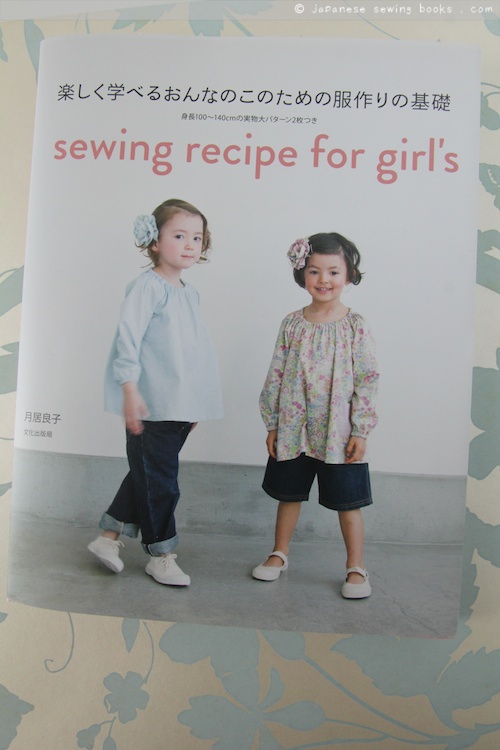
The books are almost identical in terms of content, but the front and back covers have been changed. Oh, the title has been changed as well. In Japanese, the word レシピ (pronounced re-shi-pi, a term borrowed from the English word recipe) is not only used for cooking recipes, but also to refer to instructions on how to prepare/make something. For example “Handmade Recipe” – meaning how-to-make procedure for handmade crafts. So it’s not strange to see it on a Japanese book as a book title, but I guess it will be strange to use it in reverse, i.e. on an English book since “recipes” usually refer to cooking recipes. So the editors have thoughtfully changed it to a more self-explanatory title. “Sewing for your girls”.

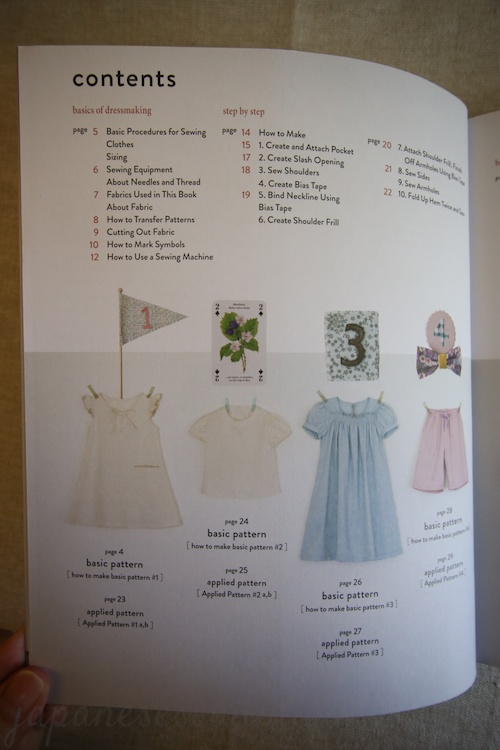
A quick look at the contents page – there are 8 basic patterns, with 1 or 2 applied patterns for each of the basic patterns.

As you can see from the contents page, there are many many pages dedicated to sewing techniques. I did not cover each individual basic pattern in my review previously, so let’s take a better look at each of the patterns as well as some of the sewing lessons.
Before we begin, here is the size chart for the patterns included in this book. Like all the other translated books, the main measurements are given in inches with cm equivalents in brackets.

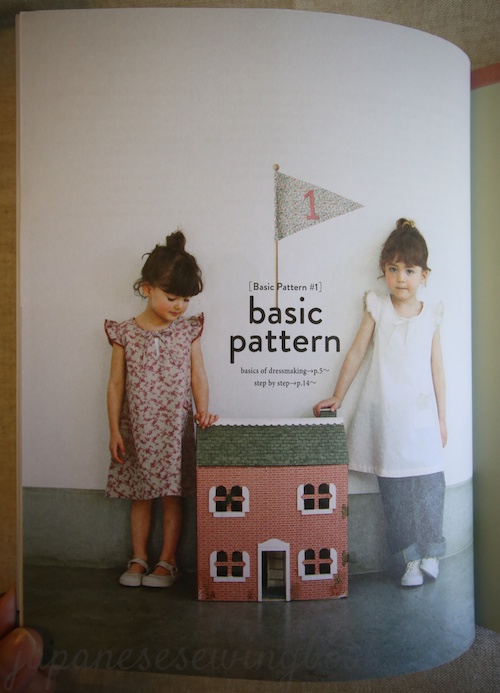
The first basic pattern (see above) is a basic A-line dress with frills on the shoulders. To make it simple, for both the one sewing as well as the one wearing it, the dress has a front neck slit and closed by a ribbon tie on the front. No complicated zips or buttons to fiddle with. A great dress to begin with if you are a beginner.

The first sewing lesson is based on basic pattern #1, includes all the steps, from transferring patterns, cutting out fabric, marking the symbols on the fabric, and even how to use a sewing machine! So even if you are not making basic pattern #1, this will be useful for you!
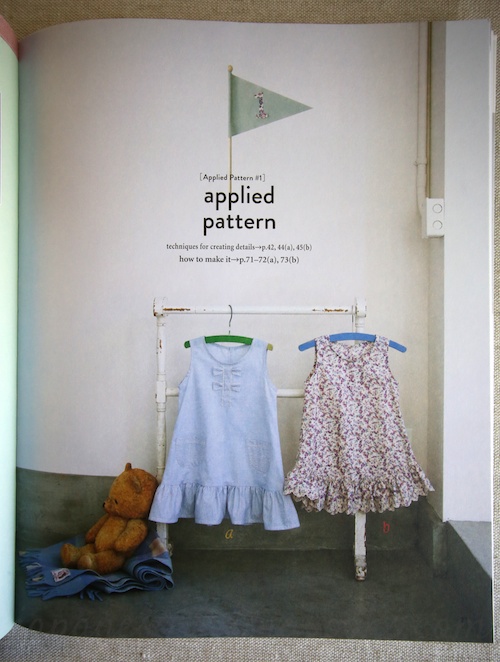
At the end of each basic pattern, the applied patterns are presented. There are 2 applied patterns for patterns #1,2 and 6, and 1 applied pattern each for patterns #3,4,5 and 7.
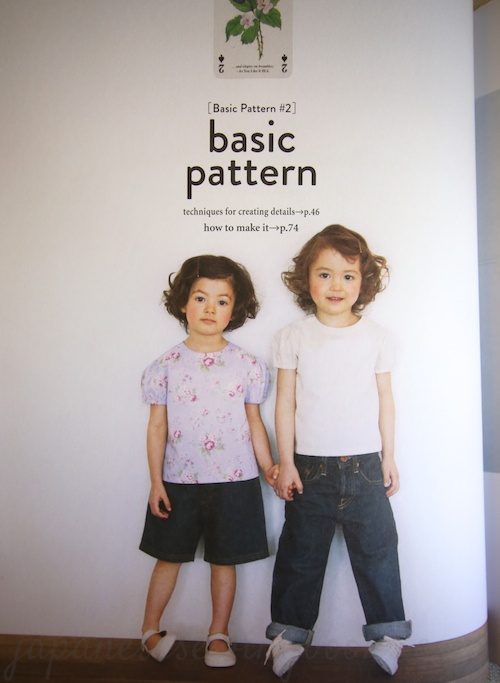
Basic Pattern #2 – Basic blouse with puffed sleeves and back enclosure with buttons.
Note how for each basic pattern, the finished projects are presented in both printed and solid color fabrics. This was done intentionally by the author so that it can help you imagine your own designs and visualize the clothes in different types of fabrics.
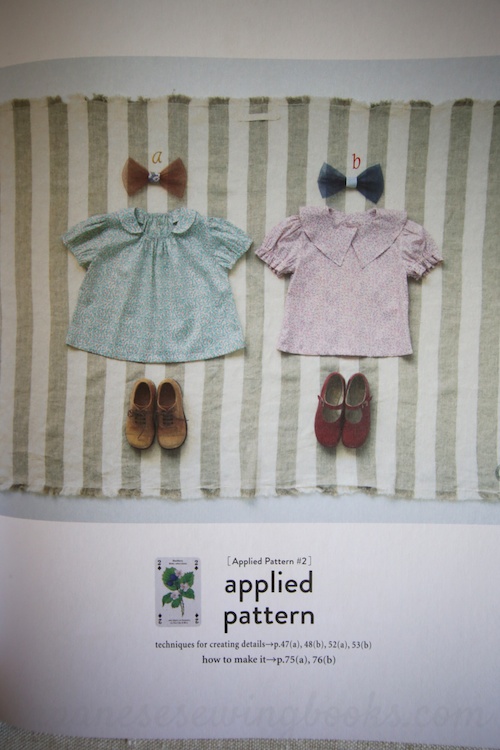
Applied Pattern #2a and #2b – with modified collars and sleeves

Basic pattern #3 is a dress with smocking on the front yoke. Smocking is a technique used a lot in girls clothing. Yup, you learn how to make real hand-stitched smocking and not the “fake smocking” effect using elastic thread.

Applied pattern #3 shares the same basic pattern as pattern #3 but looks rather different. Instead of smocking, the front yoke panel is gathered instead. The sleeves are also lengthened with added smocking details along the sleeve extension. A contrasting ribbon tape is sewn around the neckline for decoration.

Basic pattern #4 – A simple drawstring pants pattern made in sweatshirt (jersey knit) fabric that will be perfect for lounging in. Modify this pattern on your own to create easy to wear shorts or long pants in any fabric of your choice.

Applied pattern #4 uses the same pants pattern from basic pattern #4 but with an added bib + straps above the waistline, and therefore creating a new outfit – overalls. Hidden side pockets and a back pocket were added as well.

Pattern #5 is what I called the “fake smocking” effect. From far, it looks like the top part of the bodice was smocked. In actual fact, the fabric is gathered not by hand, but by using a shirring elastic. I have made these dresses many times and my girls love to wear them. These dresses are made up of simple rectangles for the front and back piece, and two more long and thin rectangles form the straps. They are very easy to sew, except that you have to wind the shirring elastic by hand with a slight tension. It may take a couple of experiments to get the correct effect so if you are doing it for the first time so do try it on a scrap piece of fabric before sewing on your actual piece of fabric.

The applied pattern is a simple adaptation. A lengthened skirt with tiers using co-ordinated fabric.
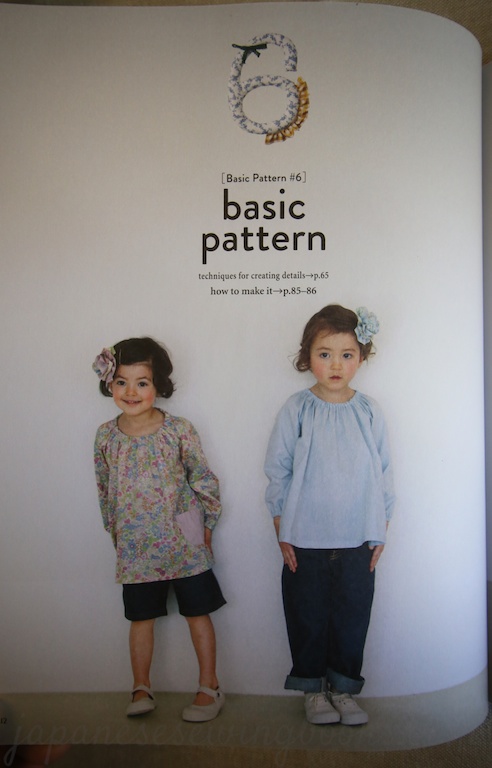
Pattern #6 is a Long sleeve smock blouse with elastic gathered neckline and sleeve openings. Easy to wear and comfy too!

The applied patterns for #6 are 2 rather different designs. One is a cap sleeve with contrast ribbon tie detail on the front, the other is a sleeveless camisole like top. You can’t see it in this picture, but there is an added layer of tulle over the fabric for applied pattern b.

Basic pattern #7 – round collar sleeveless blouse with frill details on the front bodice and buttons down the front. The tops are slightly flared towards the hem line for ease of movement.
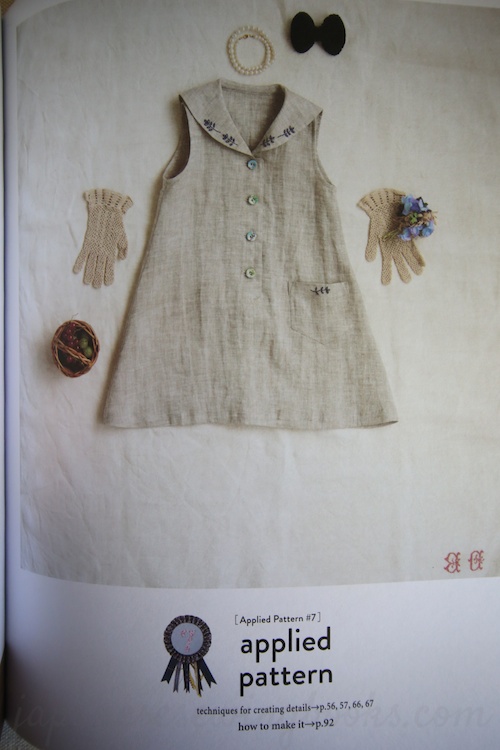
Applied pattern #7 is a lovely linen dress with a sailor type collar and a button down opening halfway down the front. I’ve always wondered how to make these half button placket kind of things but no worries, there is a sewing lesson on that too. There are also embroidery details on the pocket as well as the collar. The patterns for embroidery as well as instructions for the stitching methods are included.

Basic pattern #8 is a poncho style blouse which is great for layering over a plain top as outerwear. The hems of the flared sleeves and bodice are lined with ric-rac tape.
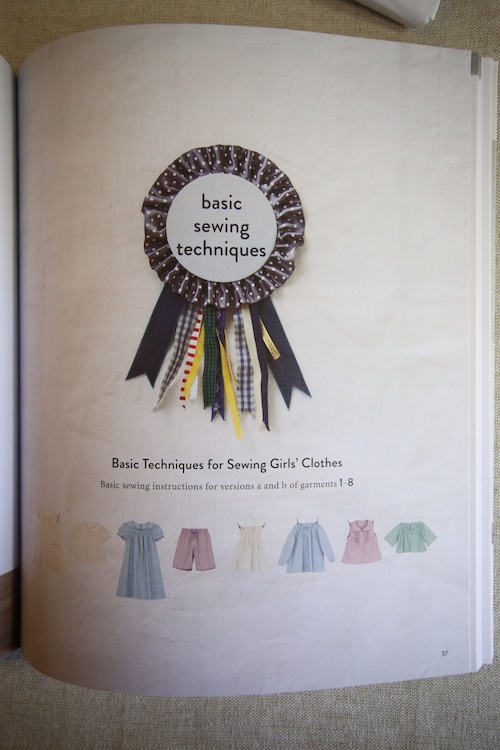
After seeing all the patterns offered, it’s time to get started on sewing! The next section covers all the basic techniques you will need for the garments in the book. Unlike the sewing lessons accompanying basic pattern #1, the photos are in black and white, but still in great detail as you shall see. There are 32 pages devoted to these step by step photos on various sewing techniques, from something as simple as hand sewing buttons to attaching a collar, inserting an invisible zipper, or a partial opening (like the half button down opening for applied pattern #7) The full list of sewing techniques can be seen on the content page.
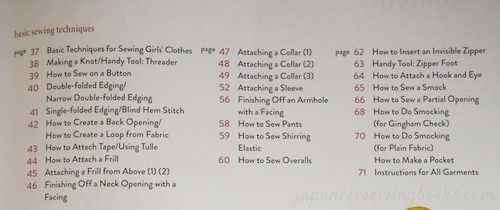 click on image to zoom in
click on image to zoom in

Example of step by step photos for sewing techniques.
The last section contains the detailed instructions for all the other basic patterns and applied patterns. Each page includes the Materials list, Instructions, Cutting layout, as well as a order of make diagram.

Close up of the order of make diagram. Follow the numbers in the order given to complete the garment.

As all the sewing techniques are compiled within one section, you will notice that the instructions do not have detailed diagrams for each step, instead you will need to refer to the respective pages under the sewing techniques. At first this may seem rather troublesome, but after a few projects, you will be so familiar with some of these techniques, you will have no need to refer to the techniques anymore.
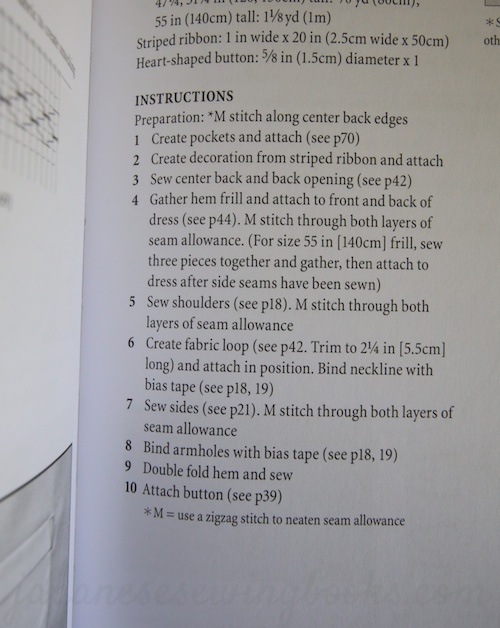

There are 2 full size pattern sheets, printed on both sides for a total of 4 sides. Attached to the back cover is a handy pocket for storing your pattern sheets.

And last but not least, the back cover has also changed. Now it includes more photos of the projects, as well as a quote by yours truly! The people at Tuttle saw my review from 3 years ago on the Japanese version of the book and asked me if they could quote me on the English version. But of course! 🙂 For me, this was truly the most exciting part about getting the English version of the book! A big shout-out to the lovely folks at Tuttle for sending me this review copy and having my quote on their book.
 click on the thumbnail to pre-order from Amazon now
click on the thumbnail to pre-order from Amazon now
 Title : Sewing for your girls
Title : Sewing for your girls
Author : Yoshiko Tsukiori
ISBN No: 978-4805313275
Next week, another newly translated English book review. It’s a book that I have reviewed before and even did a pattern translation from it. Some of you have emailed me regarding this book so I think you will be excited to see the English version of it. Stay tuned!







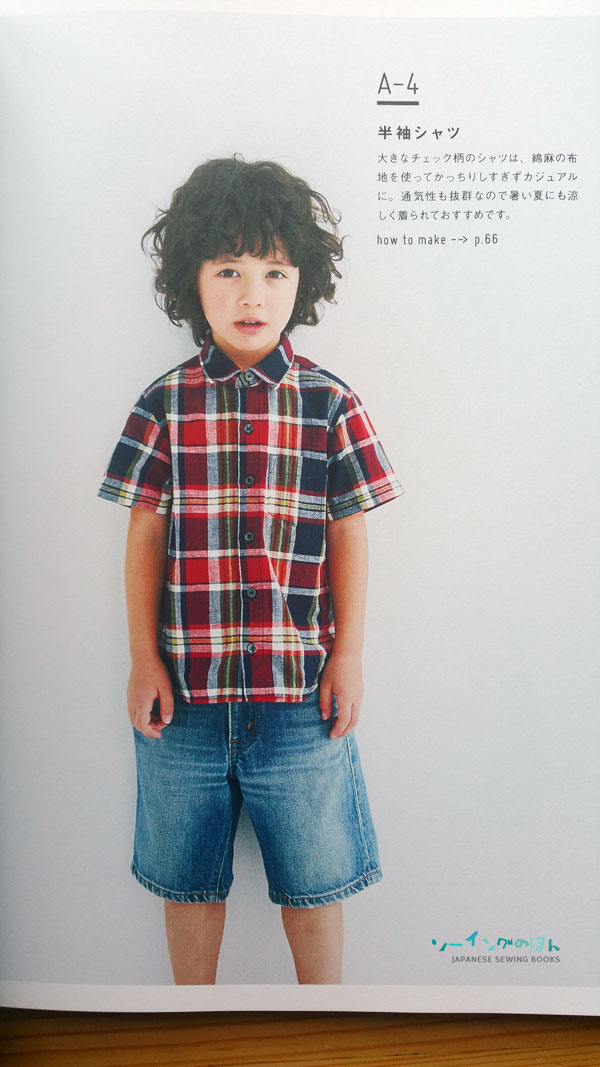
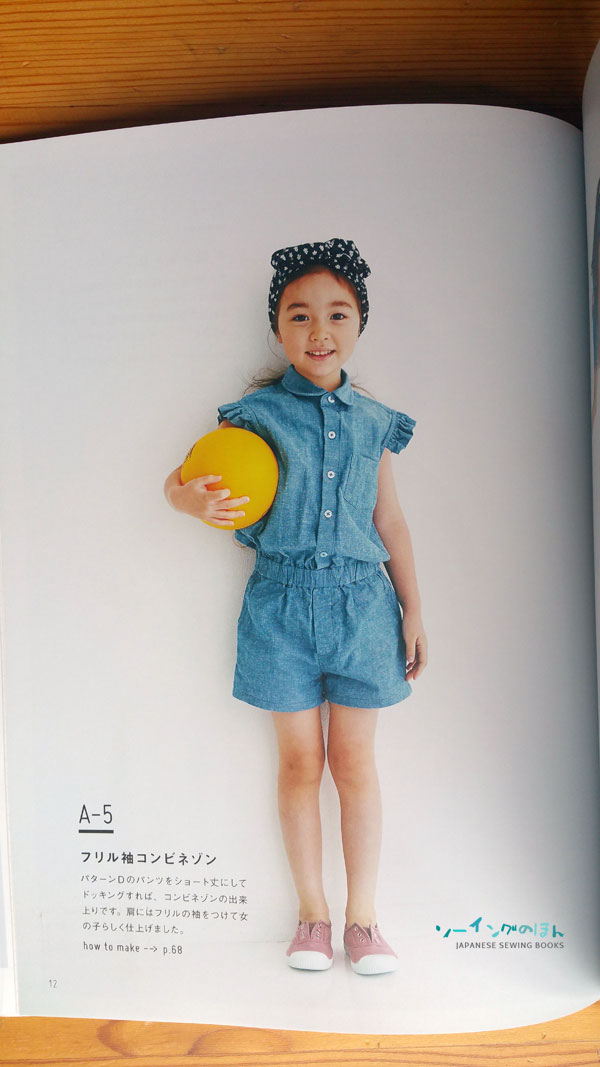

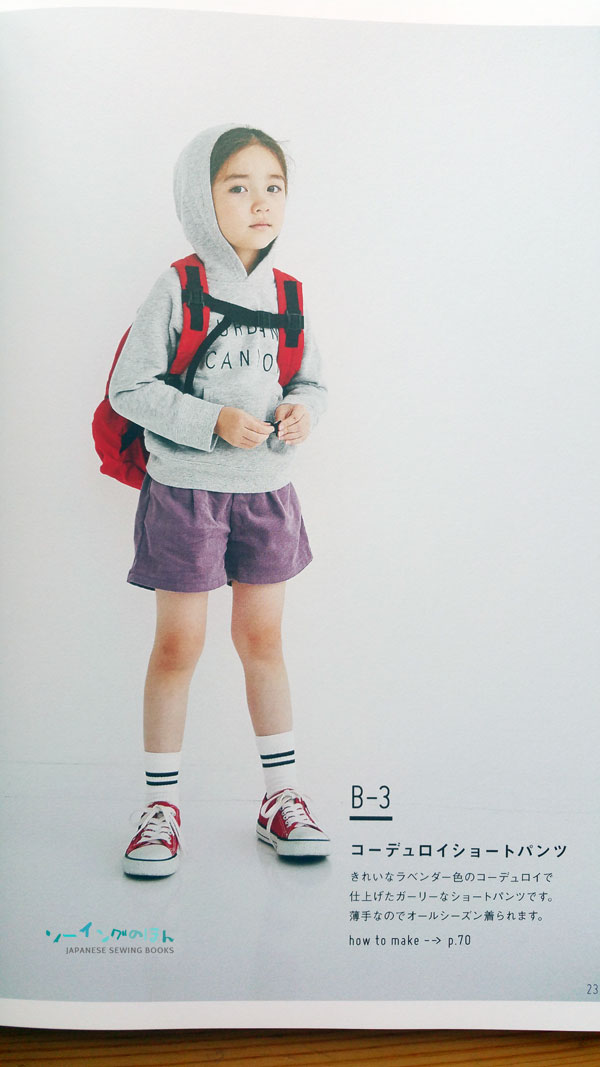


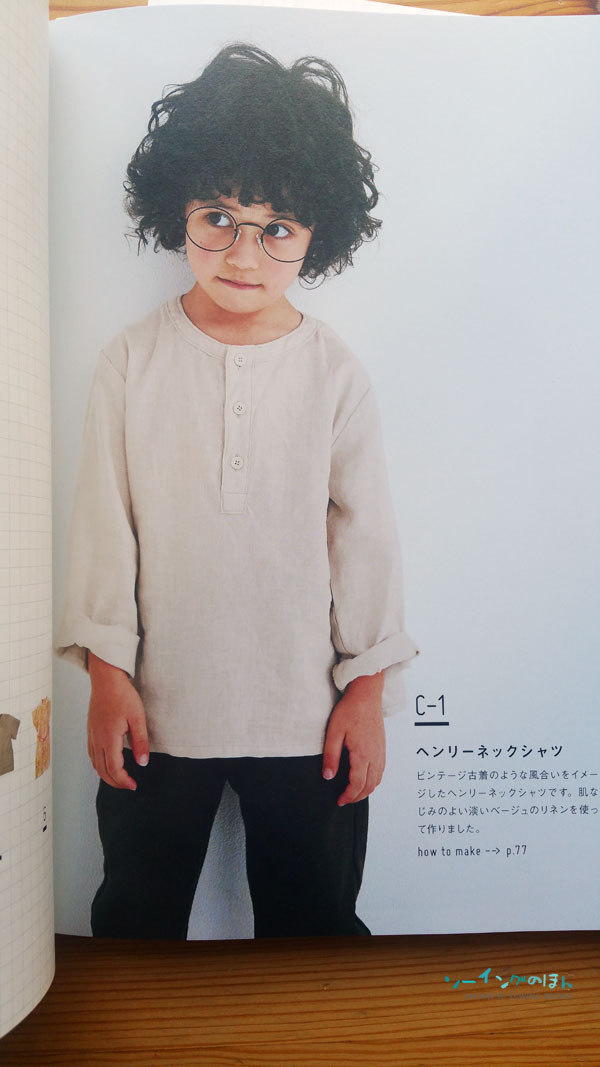
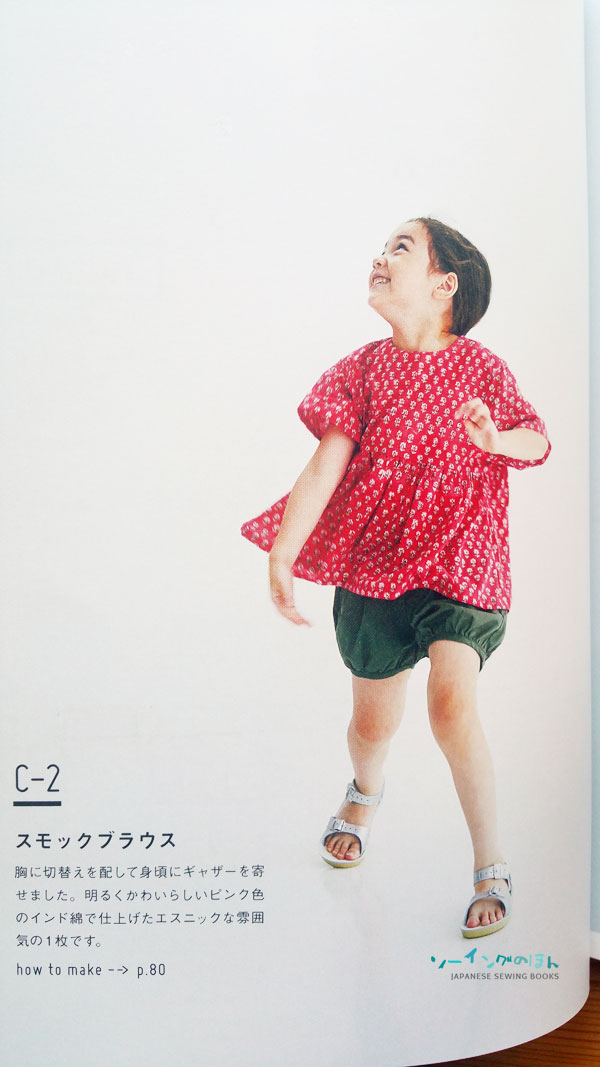
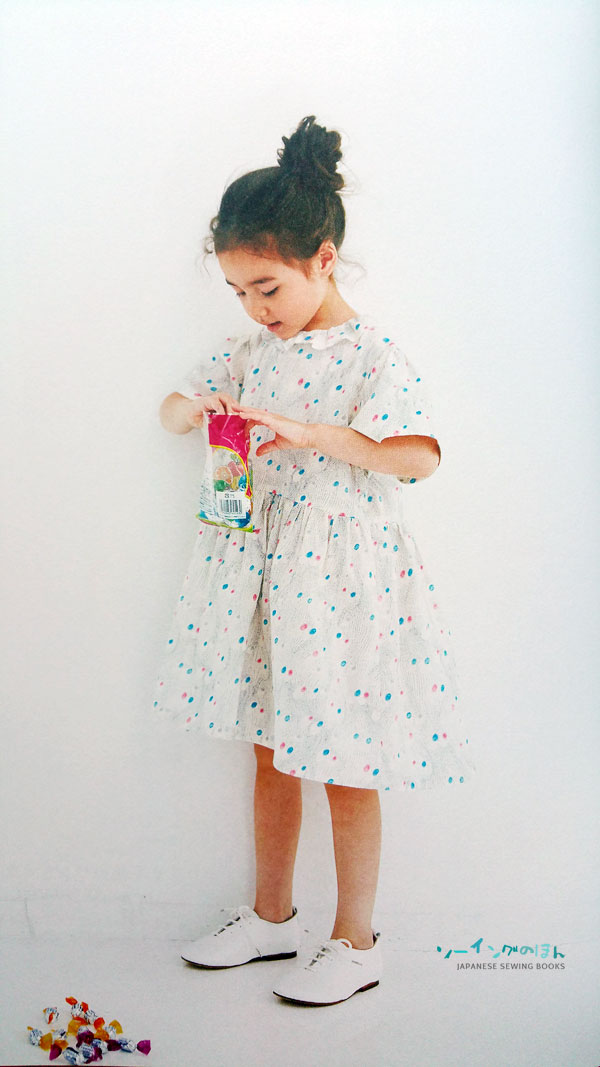







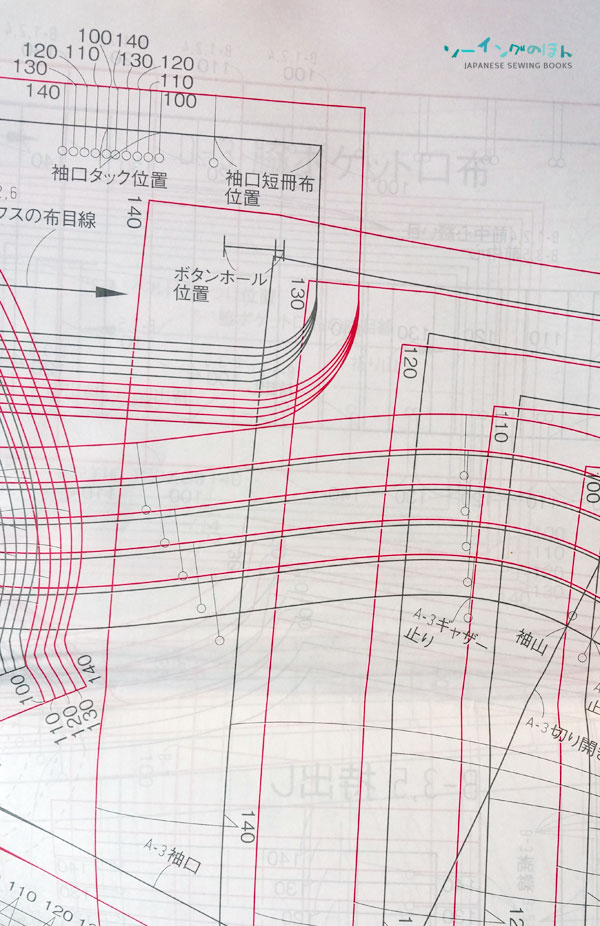





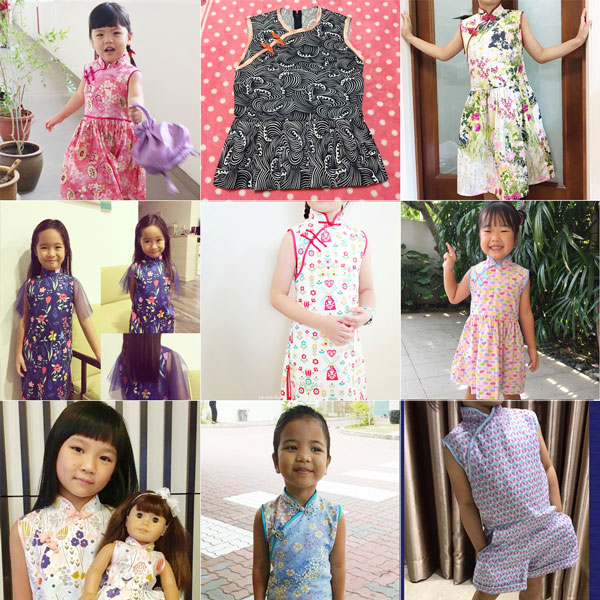


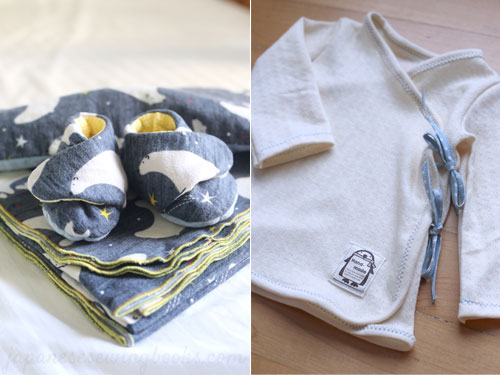
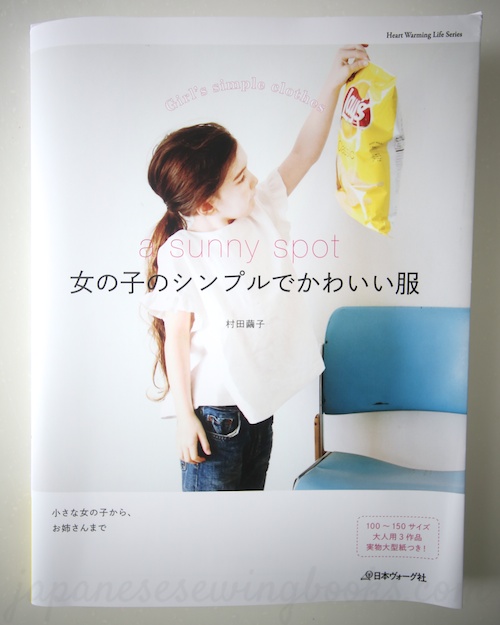
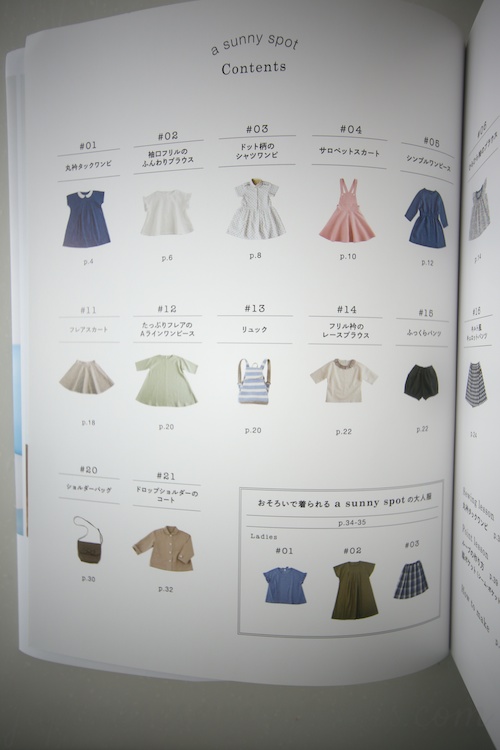



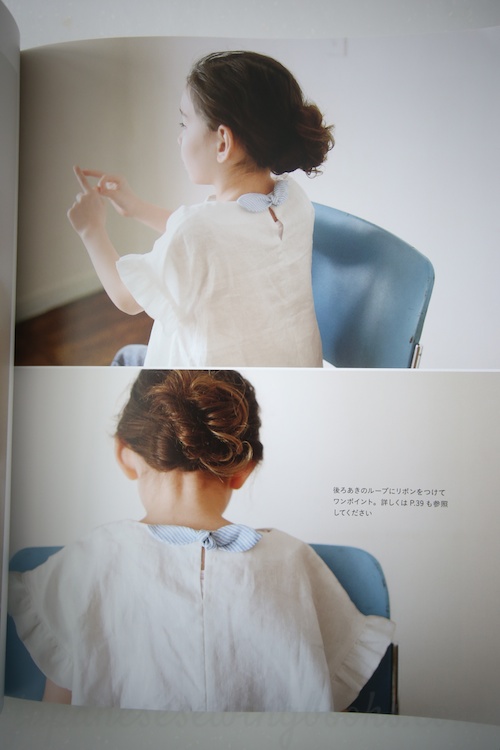


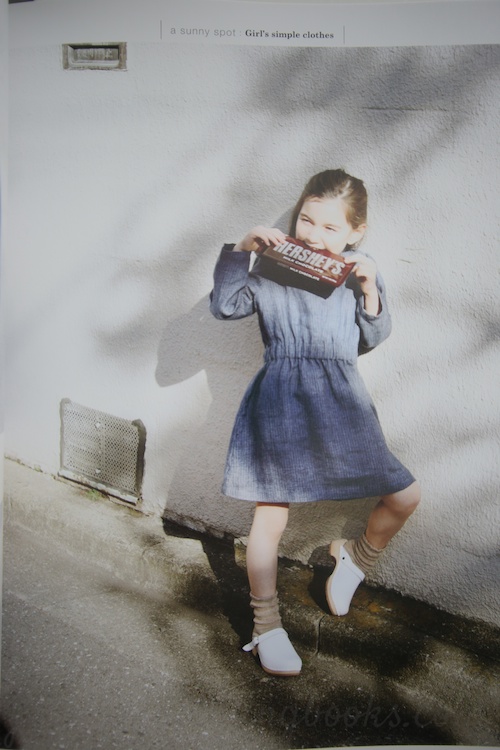

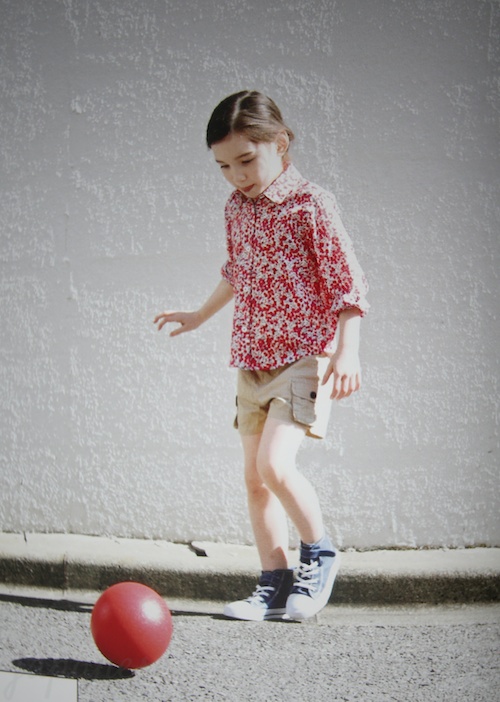
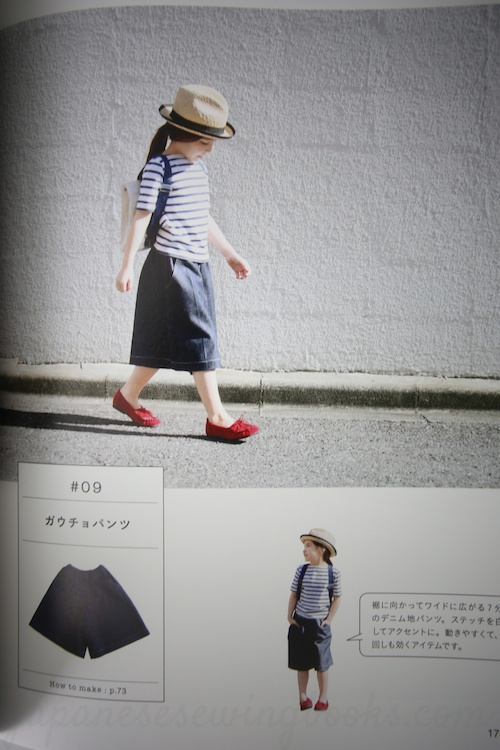

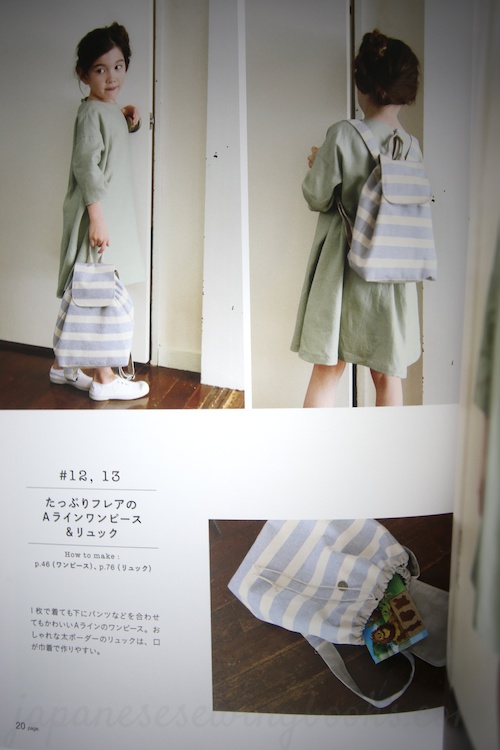
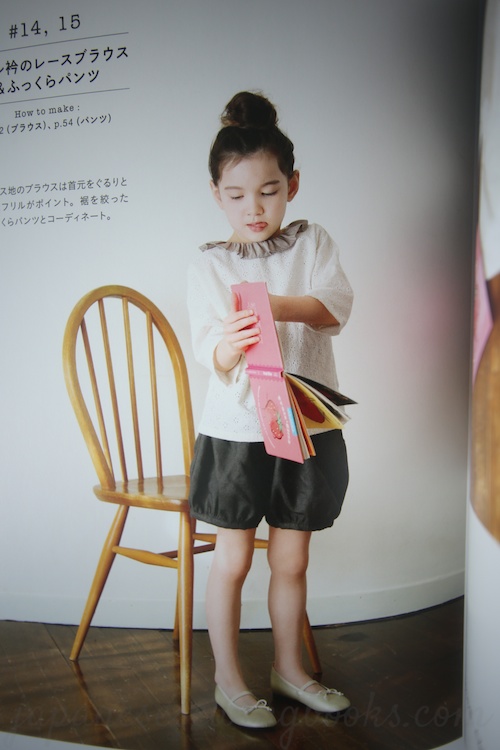
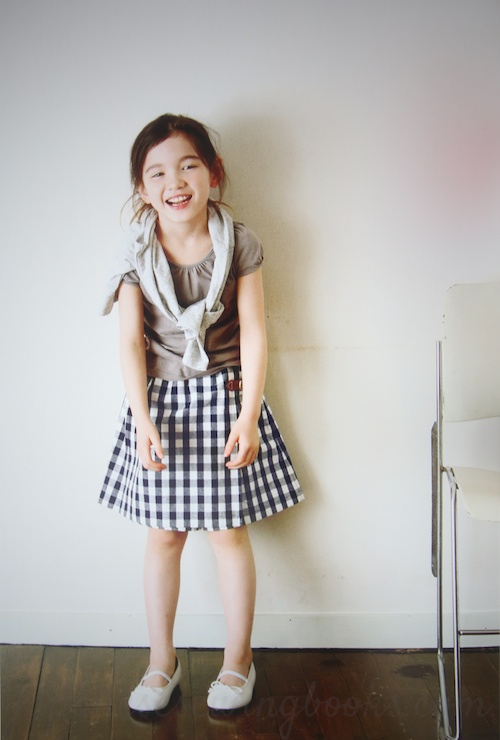
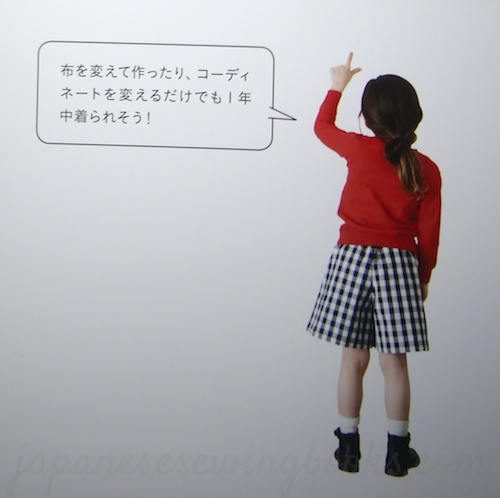

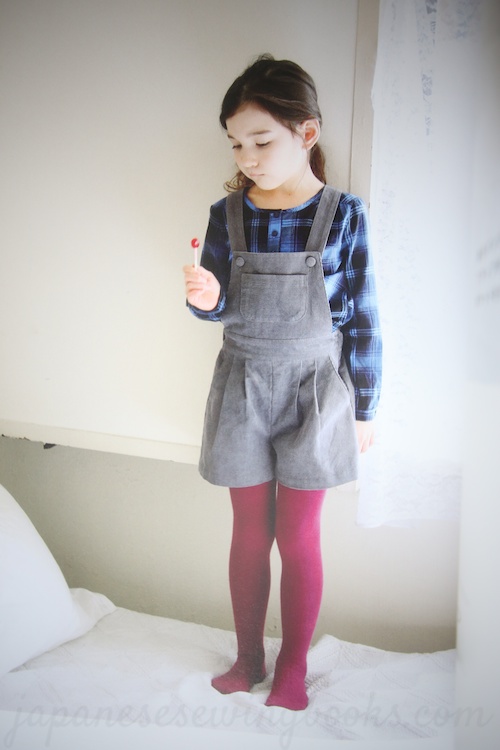
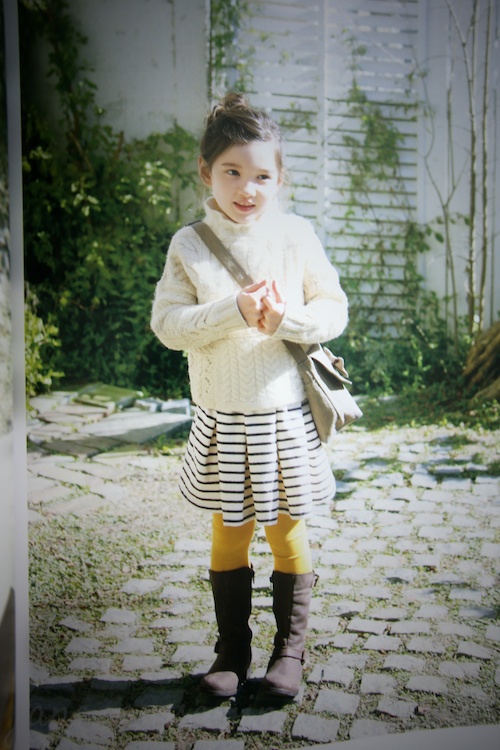
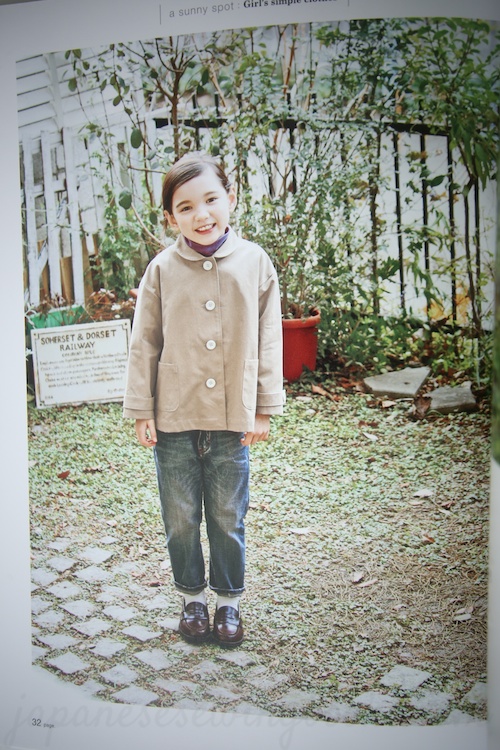


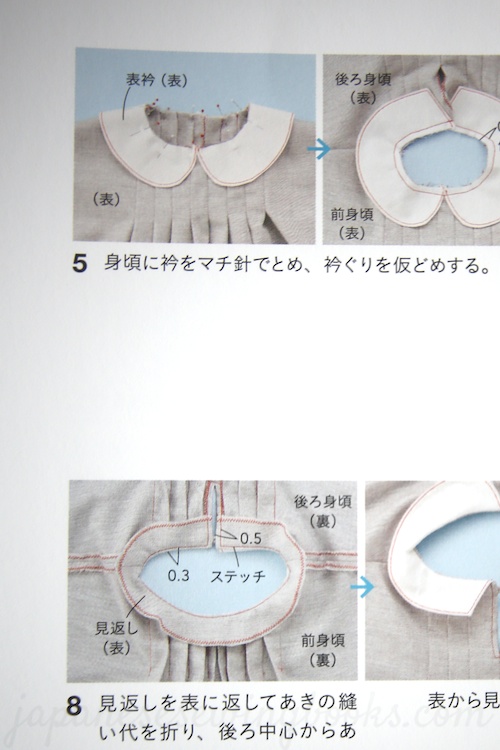


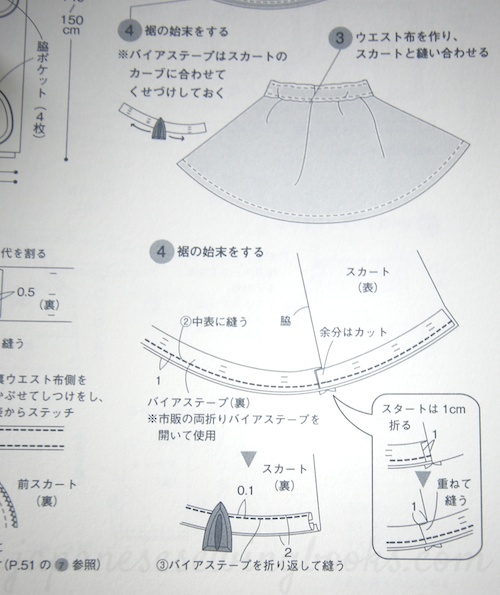

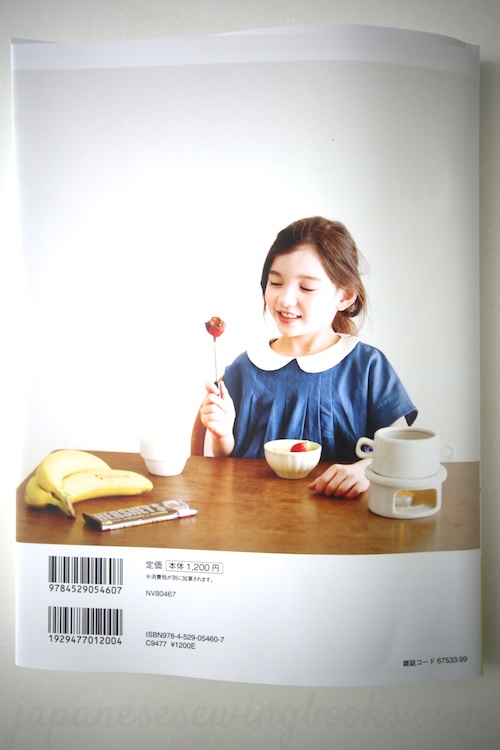





























 click on the thumbnail to pre-order from Amazon now
click on the thumbnail to pre-order from Amazon now